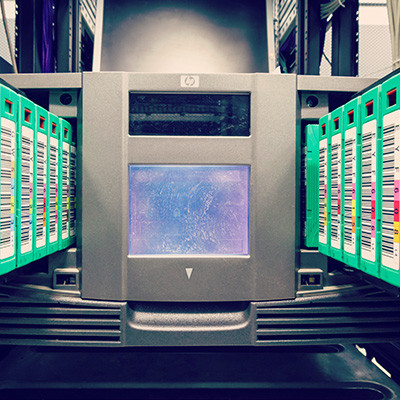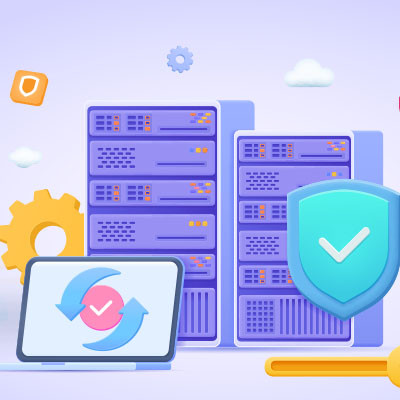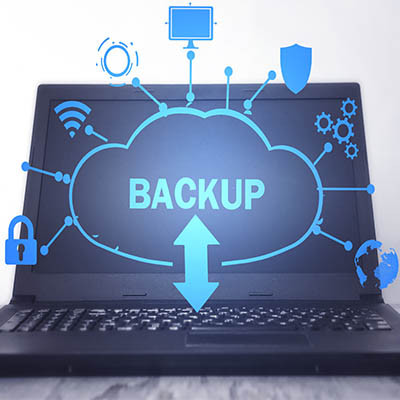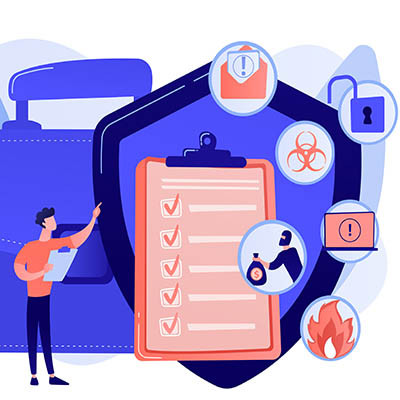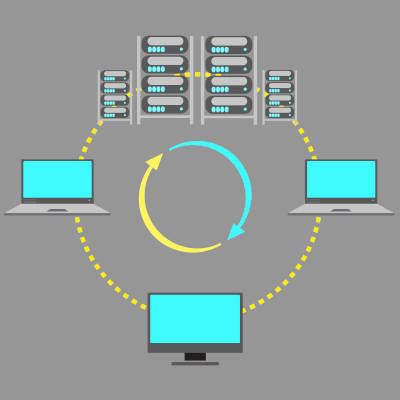IT professionals have all but proclaimed the tape backup system, which dominated the data backup space for decades, to be all but dead. This declaration may have been premature however. Over the past several years, there has been a resurgence in companies that use tape backup. This week, we will go into why businesses are willingly utilizing what can only be described as an antiquated technology for their system redundancy.
Global Tech Solutions Blog
Despite its undeniable value, data is incredibly fragile. The loss of critical information can spell disaster for a company, making data backup a paramount concern. In this article, we'll explore why data backup is so important for businesses and why it should be at the forefront of every organization's IT strategy.
Data is what makes your business function, and if you’re not careful, you might find yourself without it due to a hardware failure, malware attack, or even human error. You need to maintain and implement a powerful data backup solution to ensure that your business can bounce back following a disaster, and this platform should keep your data as safe and accessible as possible in the process. Here’s how you can implement such a solution.
If a business is in operation today, it needs to have preparations in order to protect itself and its data from potential disasters—a fact that has only become more pressing as digital data has become the norm. Let’s take a few moments to go over what today’s businesses need to include in their disaster recovery preparations to ensure that their data remains protected.
If you have never imagined your business in the crosshairs of enemy hackers, you could be in for a rude awakening. Unauthorized access to important business data could be enough to bring your business’ operations grinding to a halt, among other consequences. You need to focus your efforts on security, including protecting your infrastructure and ensuring its redundancy through data backup systems.
While “redundant” isn’t typically used as a complimentary descriptor, it very much is when it comes to your business’ data and data backups. This is because you want to make sure that you always have a backup copy ready to go. Let’s consider what a business that doesn’t have this redundancy present in its data is vulnerable to experiencing.
Business continuity is one of those things that can easily be overlooked as most businesses do whatever they can to focus on the job at hand. Unfortunately for the unprepared business, there are a lot of situations that can happen that can interrupt its ability to function optimally. Having continuity strategies in place can save organizations a lot of time and money as they are able to get back up and running effectively quicker.
Bad things happen. If your business fails to plan for the worst, when something terrible does happen, you could be looking at disaster. If you have a comprehensive continuity plan in place, however, you have a fighting chance. Let’s discuss some of the elements you absolutely need to address when making your business’ continuity plan.
You would be surprised what types of things can disrupt your business’ ability to operate. It could be something as benign as a power or Internet outage, something inevitable like a hardware component failure, or something so nefarious as ransomware. Regardless of what happens, every business should have a plan in place to respond to any situation and recover quickly and effectively. For the business that depends on data, having it properly backed up solves one major issue. This month, we thought we’d go over some of the basic questions you need to answer about your data backup and recovery process.
Business continuity is difficult to talk about for some business owners, specifically because no one likes to talk about the worst case scenario. What would you do if your business were to suddenly go through a disaster? Do you have a plan in place? If not, let’s talk about that. Here are some aspects of business continuity that you must consider. Remember; your company’s future depends on it!
Backup strategies vary. Some companies choose theirs for its value. Some back up everything. Some ignore it all together. While we definitely don’t advise the latter, we do understand that it is a financial investment for what is essentially insurance. What’s more effective is building a backup plan that fits the type of data you create and store.
The Novel Coronavirus has made its way around the world and it has certainly changed the way a lot of businesses do things. Some businesses have put in some type of disaster recovery platform. This is basically a plan for returning to continuity after some type of disaster, but we are seeing that many business continuity plans were not broad enough to take on a worldwide pandemic. Sadly, many of these businesses won’t open again.
If you are a regular visitor to our blog, you know just how important we think data backup is for any business that relies on data. If your business stores and creates data, you need to have a backup strategy in place. It’s that simple. Today, we want to discuss how to improve your data backup strategies with a BDR.
Some terms are thrown around like everyone knows what they are. This is especially the case with IT and technology solutions. Perhaps it’s a result of them being around for quite some time in professional environments, but it doesn’t help those who are unfamiliar with the technology. One term that we should all understand is “firewall,” as it’s omnipresent in the business sector, but it’s far from the only security solution you’ll need to guarantee safety.
How are you protecting your data from disaster? If you don’t have a backup and disaster recovery platform in place you are missing one of the most crucial parts of managing your business’ data. Think about it, if your organization were to suddenly lose a significant portion of its data, would it be able to continue to function effectively?
Every business owner wants to protect their data. Even if they don’t pour money into doing so, they typically still understand the importance of it. That’s why three-out-of-every-four businesses perform a backup at least once per week. It’s still good to be reminded how to make sure your backup can work for you. Let’s go over a few basic considerations to make if you want a data backup that you can trust.
You don’t need to be repeatedly told just how important risk management is. If you did, you probably wouldn’t have made it this far. One problem you see from business owners today is that while they understand just how many problems there are--and which ones they need to find solutions for first--they want to grow their company so fast that they overlook potential problems and end up hurting their business as a result. This month, we thought we would talk a little bit about contingency planning and how, if it is done right, it can have a marked effect on your business’ ability to carry-on after a problematic event.
Each March 31st, we like to observe World Backup Day, where we educate people about the benefits of having a comprehensive backup plan in place. This year, with tens of thousands of people being affected by Coronavirus, business has ground to a halt in large portions of the world. Today, we are going to look at the business continuity strategy and how, in times like these, you’ll be glad you have your data backed up.


